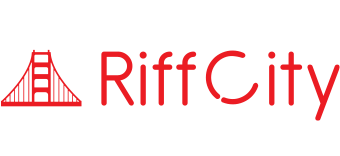GovTech: As Crop Spreads, Accela Announces Hemp Licensing Software
Check out Riff City Strategies’ Client Accela in the article below.
GovTech – June 25, 2019
In the agricultural community, hemp is trending. The national advocacy group Vote Hemp said the crop’s acreage across 23 states more than tripled from 2017 to 2018, and the number of state-issued licenses more than doubled in that time. A report this month by Grand View Research projects the industrial hemp market will reach $10.6 billion by 2025.
By removing hemp from the federal list of controlled substances, the 2018 Farm Bill opened the floodgates in all 50 states for cultivation and processing of everything from hemp clothing to paper, biofuel, construction and packaging materials. It has also prompted cloud-software giant Accela to devise a new hemp licensing SaaS, announced today in anticipation of heavy interest in the burgeoning market.
As a standalone product or part of Accela’s Civic Solution for Cannabis Regulation launched in 2017, the Hemp Licensing tool proposes to help states simplify applications, renewals, payments, mapping and other facets of the process, while adhering to either the federal government’s regulations or the state’s. Accela’s Vice President of Strategic Solutions Greg Felix emphasized that, much less than creating a free-for-all industry, the new farm bill requires state departments to either submit a regulation plan for approval by the U.S. Department of Agriculture, or accept the USDA’s regulations.
For this reason, Felix said the new hemp-licensing software was designed with input from government officials particularly in the South, Southwest and Canada, who have been negotiating hemp licenses for years.
“It will be a heavily regulated market, where state and federal agricultural departments need to work closely together to regulate hemp cultivation and production at the state level,” he said. “What we wanted is the biggest possible view of all the possible scenarios that would be required: record types, the word-flow automation that needs to be in place, the kinds of reports that need to auto-generate, the communication that needs to occur between businesses and the state … so we can come to a jurisdiction or state and say, ‘Why would you reinvent the wheel when we have this content, these assets, ready to go for you to deploy?’”
Felix counted nine state governments with a regulatory framework in place so far: Louisiana, Nebraska, Arizona, Iowa, Connecticut, Georgia, Oklahoma, Pennsylvania and Wyoming. But setting up a regulatory framework is one thing, he said; implementing it, installing software and accepting applications is another.
Other licensing companies have seen the opportunity, too. One of the govtech industry’s biggest software companies, NIC Inc., acquired the cannabis- and hemp-regulation platform Complia last month, and companies such as BioTrackTHC have been offering software to monitor regulatory compliance for years.
But Felix touted Accela’s experience with its Civic Cannabis solution — which has had nine implementations so far, including California, Michigan and Nevada state governments, and the city of Los Angeles — as helpful groundwork for hemp licensing, and said Accela’s is the only tool he’s aware of that is prepared to scale with demand.
“When a state goes medical cannabis, the program generally starts very small. … When that expands, that’s when the product’s technology stack really gets tested,” he said. “We’re starting to see expansion of medical programs, and then where it really goes logarithmic is when that same state goes recreational. We have built our solution with that endpoint in mind: They need to start with hemp, maybe they stand up a medical program, then that program expands, then by ballot measure, they go to recreational. You need a system that can handle that, all the way along.”
